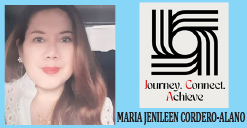Productivity isn’t just about working harder; it’s about working smarter. Enhanced efficiency, reduced stress, and improved outcomes are the desired results. This article explores practical strategies to boost your productivity, focusing on time management, task prioritization, and mindful work habits.
I. Mastering Time Management: The Foundation of Productivity
Prioritize tasks strategically; don’t just cram your schedule. Focused effort on key priorities maximizes output and leads to a more productive life. Several techniques can significantly improve your time management skills:
– Time Blocking: Scheduling dedicated time blocks for tasks minimizes disruptive context switching, fostering deeper focus and greater efficiency. This leads to improved overall productivity and reduced stress. For example, dedicate 9:00 AM to 10:30 AM to writing, 10:30 AM to 12:00 PM to emails, and so on. Be realistic about how long tasks take and build in buffer time.
– Pomodoro Technique: Employ the Pomodoro Technique which is taking 25 minutes of focused work followed by a 5-minute break. This technique leverages the power of short, intense focus periods, preventing burnout and maintaining concentration. After four Pomodoros, take a longer break (15-20 minutes).
– Eat the Frog: Conquer your most daunting task first; this early win builds momentum and clears mental space for the day ahead. Getting this out of the way creates momentum and frees up mental energy for the rest of the day. This approach reduces procrastination and boosts overall efficiency.
– Two-Minute Rule: Handle any two-minute task instantly. This prevents small tasks from piling up and becoming overwhelming. This simple rule can dramatically reduce your to-do list clutter.
II. Prioritizing Tasks: Focusing on What Matters Most
Not all tasks are created equal. Prioritize effectively—importance and urgency are key to maximizing productivity. Several methods can assist in this process:
– Eisenhower Matrix (Urgent/Important): Use the Eisenhower Matrix to categorize tasks by urgency and importance (Urgent/Important, Important/Not Urgent, Urgent/Not Important, Neither). Focus on the “Important but Not Urgent” quadrant to prevent crises and proactively manage your workload.
– MoSCoW Method: Prioritize tasks based on Must have, Should have, Could have, and Won’t have. This method helps clarify essential tasks and those that can be deferred or eliminated. This is especially useful for project management.
– Pareto Principle (80/20 Rule): Focus on the vital 20% that delivers 80% of your results.
Focus your energy on these high-impact activities to maximize your return on investment (ROI) in terms of time and effort.
III. Cultivating Mindful Work Habits: Enhancing Focus and Efficiency
Beyond time management and prioritization, mindful work habits are essential for sustained productivity. These habits promote focus, reduce stress, and improve the quality of your work:
– Minimize Distractions: Minimize distractions—social media, emails, and non-essential meetings—to enhance focus. Create a dedicated workspace free from interruptions. Consider using website blockers or noise-canceling headphones.
– Group Similar Tasks: Batch similar tasks to reduce context switching; for example, handle all emails at once. This streamlined approach minimizes mental load and boosts efficiency. This reduces mental overhead and improves efficiency.
– Take Regular Breaks: Short breaks throughout the day are crucial for maintaining focus and preventing burnout. Take regular breaks; step away, stretch, or relax. Regular breaks enhance cognitive function and improve overall productivity.
– Delegate When Possible: Delegate effectively to free up time for higher-priority tasks requiring your expertise. Effective delegation is a key productivity booster.
– Regular Review and Adjustment: Regularly assess and adapt your productivity system- personalization is key. What works for one person may not work for another. Experiment with different techniques to find what best suits your work style and preferences.
IV. Conclusion: A Sustainable Approach to Productivity
Productivity isn’t a destination, but a continuous journey of refinement and adaptation. By consistently implementing these strategies – mastering time management, prioritizing tasks, and cultivating mindful work habits – you can achieve a sustainable level of productivity that enhances both your professional and personal life. Remember that consistency and self-awareness are key to long-term success. Boosting productivity is a personal journey. Experiment with different techniques. Adapt strategies to fit your unique workflow. Find what helps you focus and achieve your goals. The most effective system is the one you consistently use.
————–
If you have any questions or would like to share your thoughts on the column, feel free to send an email to jca.bblueprint@gmail.com. Looking forward to connecting with you!




